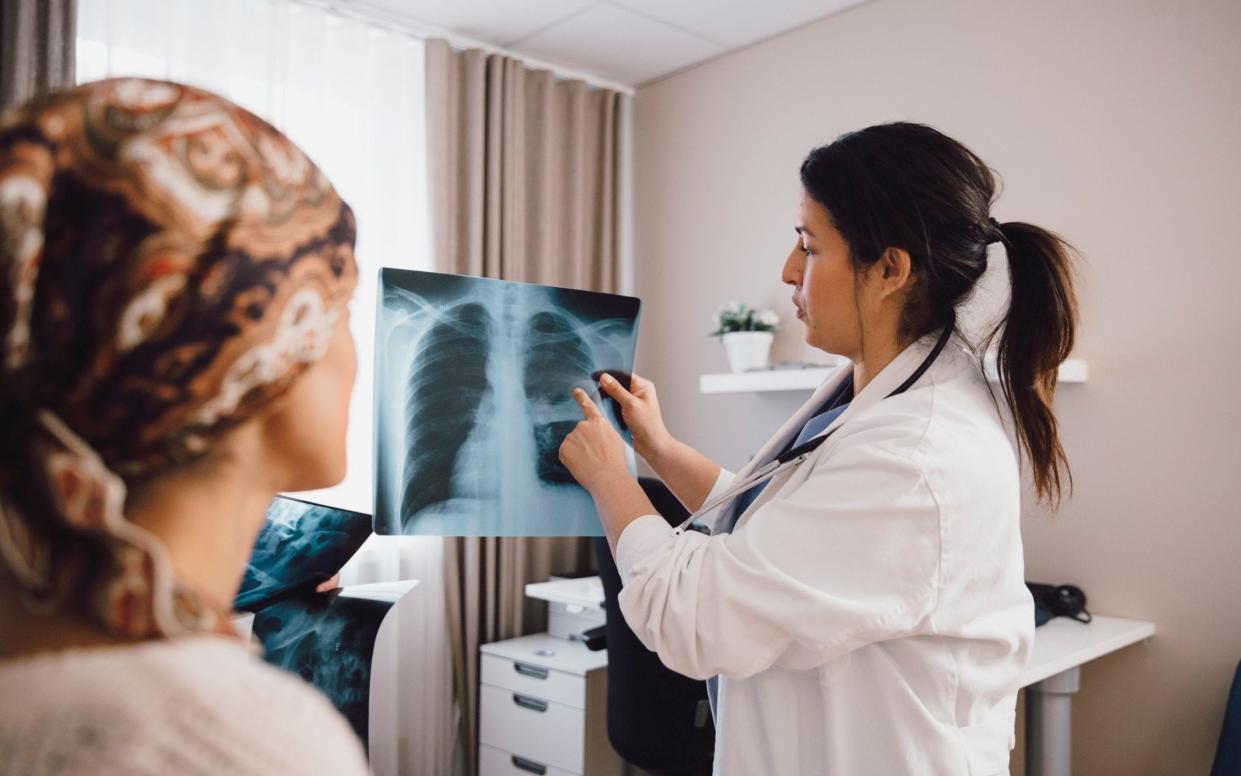Young breast cancer survivors almost twice as likely to develop another cancer, study finds

Women who survive breast cancer before the age of 50 are almost twice as likely as their peers to develop second cancers, research shows.
Across all ages they have an 87 per cent increased risk of womb cancer, a 58 per cent greater risk of myeloid leukaemia and a 25 per cent increased risk of ovarian cancer, a study of almost 600,000 adults showed.
Isaac Allen, fellow author of the study, from the Department of Public Health and Primary Care at the University of Cambridge, said knowing the increased risks could help to ensure that medics “look out for signs of potential new cancers”.
Breast cancer survivors were also found to have twice the risk of cancer in their other, healthy breast, compared with the general population.
The research, published in Lancet Regional Health – Europe, found particular risks for younger breast cancer survivors.
Eight out of 10 breast cancer cases are in women over the age of 50.
Those diagnosed with breast cancer under the age of 50 were 86 per cent more likely to develop a second, new cancer compared to the general population of the same age.
Women who were diagnosed with breast cancer after the age of 50 had a 17 per cent higher risk of suffering cancer again, compared with their peers.
Risks unclear until now
While it is already known that people who survive breast cancer are at higher risk of another primary cancer, the true risk has been unclear until now.
The researchers said the inherited faulty genetic mutations BRCA1 and BRCA2, which are already known to increase the risk of early breast cancer and ovarian cancer, offered a partial explanation for this finding.
The study also found that women from the most deprived backgrounds were at 35 per cent higher risk of another cancer compared to those from the wealthiest backgrounds.
Some of this was explained by higher prevalence of smoking, obesity and alcohol consumption, researchers said.
Particular risks were found for lung, kidney, head and neck, bladder, esophageal and stomach cancers.
The study used a National Cancer Registration Dataset for more than 580,000 women and about 3,500 men diagnosed between 1995 and 2019.
Katrina Brown, Cancer Research UK’s senior cancer intelligence manager, said: “This study shows us that the risk of second primary cancers is higher in people who have had breast cancer, and this can differ depending on someone’s socio-economic background.
“But more research is needed to understand what is driving this difference and how to tackle these health inequalities.”
The study also found men surviving breast cancer were 55 times more likely than the general male population to develop cancer in their other breast, though the overall risk was very low. Male breast cancer survivors were also 58 per cent more likely to develop prostate cancer.
Dr Simon Vincent, director of research, support and influencing at Breast Cancer Now, said more work was needed to “fully understand the reasons why second primary cancers sometimes develop elsewhere in the body and to determine what follow-up would be appropriate for people who have finished hospital treatment for primary breast cancer”.
He said anyone worried about any new or unusual breast changes should call its treatment team, GP, or the Breast Cancer Now free helpline.


